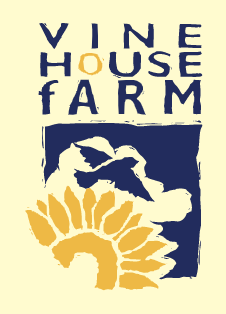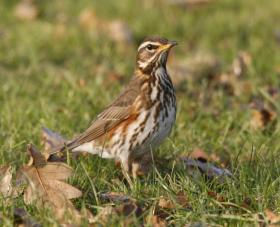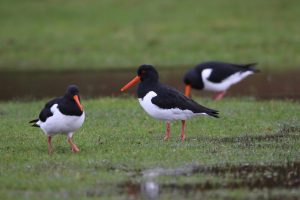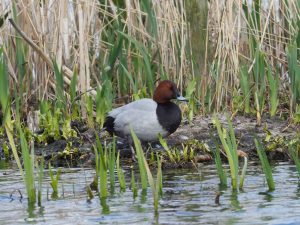
Despite the warm weather around the middle of October, it wasn’t a record-breaking month as we’ve had eight warmer Octobers since 1995. We’re having to pay for that nice warm weather now, with all the recent rain. Our rainfall only comes out to 4.75 ins or 118mm this month, much drier than most of the country. It was our wettest October since 1903 though, when we had 6.25ins.

On our farm during October, the two most important activities are potato lifting and drilling wheat. It costs ten times as much to grow an acre of potatoes as it does an acre of wheat. We grow over 200 acres which involves between eight to ten people when we are lifting. The last four years growing potatoes has been very difficult and many growers have stopped growing them. This year we are hoping for better, but the wet weather has slowed us down and as we move into November, we still have several days of potato lifting in front of us.
There are many different varieties of potatoes we can grow; the variety a farmer chooses depends on the type of soil. On the nice silty soils around the Wash, farmers usually grow potatoes for household use, so they must have a nice shape and an attractive skin finish. On the sandy soils in various parts of the country, potatoes generally don’t have a pleasant skin finish, so they are grown for processing as chips or crisps. The factories don’t mind what they look like, they must process with the minimum of waste.
We’ve also been drilling wheat as fast as we can; we call this ‘winter wheat’ because it’s in the ground over the winter. We’ve been drilling with the minimum of cultivation and sometimes without any cultivation at all. The more cultivations we do, the more insects we kill – they are vital to make the holes in the soil for water to drain away.
Winter wheat is generally the most profitable crop that goes through the combine harvester; the next most profitable would be oil seed rape. Many farmers have been growing those two crops too often, both of them drilled in the autumn. They have run into trouble with a weed called blackgrass, which germinates in the autumn. If you have a field full of blackgrass, you will have a very poor crop of wheat and billions of blackgrass seeds in the soil, ready to grow at the first opportunity.
Blackgrass is a difficult weed to kill. If sprayed at the optimum time it can be killed, but it’s not easy to spray every field at the optimum time. The majority of blackgrass germinates in the autumn, so one way of keeping it at bay is to sow crops in the spring. There are now more crops of spring barley and spring beans grown, but they don’t offer farmers as good a margin as the winter sown crops.
Blackgrass has reduced the income of most farmers who put all their crops through the combine. The Government has replaced the acreage payment with conservation incentives to help wildlife. However, depending on which part of the country and the quality of the land, many of these conservation incentives are not economically viable compared to growing crops. This means many of these wildlife incentives are not taken up and is especially so in Lincolnshire.


It has been a quiet time for seeing birds on the farm; all our summer visitors disappeared south by the end of September, although I did see two Swallows flying south-west on October 7th. Our resident birds still have plenty of food, as there are pickings from all the crops we have grown and all the seeds in our margins and uncropped areas.
Unfortunately in the Fens, there aren’t many uncropped areas and most of the margins get cut and chopped with the flail mower. This leaves behind just a mulch, hiding the seeds that were produced on plants earlier in the year. It certainly makes a farm look tidy, but it destroys food that would have been available for wildlife. Fifty years ago, I made a point of not filling in dykes to make bigger fields, so we have many dykes that are not mown, which offer food and shelter. We’ve also dug ponds, made reedbeds and have 25km of six metre margins around our fields.
You could say that a farm is a factory, and in every real factory every inch is used for production, so why shouldn’t every inch of farmland be used for production? We know that modern farming is gradually reducing our wildlife. If the public want to see more wildlife on farms, the Government will have to pay farmers to put features in for wildlife. This they are doing, but the payment they are offering is not sufficient to tempt farmers in the Fens to choose these options. That means areas put down for wildlife are on the less productive areas of the country. You could say the Government has got that right, but that was not put in place by our present Government. Is there anything that our present Government is running, and running well?
Our winter visitors have started to arrive, on the October 12th, we had several flocks of Whooper Swans flying over en-route to the Welney or Whittlesea washes. I could hear them coming before I could see them; they were bugling away which is how they keep in touch with each other, when migrating at night. Redwings arrived a few days later, probably from Iceland and Fieldfares a few days after that; they would have crossed the North Sea. If the winds are not suitable for crossing the North Sea, they’ll keep heading south to Denmark, Holland and France.
Lapwing, Golden Plover, Starling and Wood Pigeon numbers are all building up. During the first half of November, there will be more birds on the farm than at any other time of the year. All these birds arrive on the east coast and once refreshed from their flight across the North Sea, they gradually trickle on to the south-west. While they are with us, they favour those fields that have had the least cultivations.
If we can drill our next crop and still leave the residue of the previous crop on the surface, those are the fields where you find the most wildlife. Because we have received so much rain, it is not possible to do any more direct drilling this autumn, as the soil is so wet, it will not flow through our drills. All this wet weather is causing us big problems and even bigger problems if fields have been flooded.



